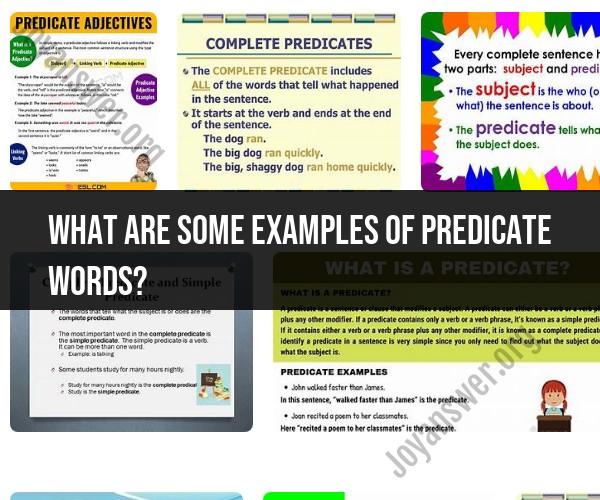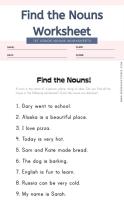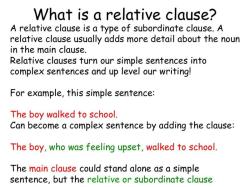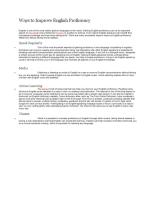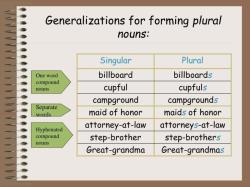What are some examples of predicate words?
In grammar, a predicate is one of the two main parts of a sentence, along with the subject. The predicate typically includes a verb and provides information about what the subject is doing or what is happening to it. Predicate words are words within the predicate that add details or modify the action of the verb. Here are some examples of predicate words and their usage:
Adverbs: Adverbs are often used as predicate words to modify the verb by providing information about how, when, where, or to what extent the action is taking place.
- She sings beautifully. (The adverb "beautifully" modifies the verb "sings" by describing how she sings.)
Adjectives: Adjectives can be part of the predicate when they describe the subject or the object of the verb.
- The cake tasted delicious. (The adjective "delicious" describes the cake, which is the object of the verb "tasted.")
Direct Objects: Direct objects are nouns or pronouns that receive the action of the verb, and they are essential components of the predicate.
- She baked a cake. (The noun "cake" is the direct object of the verb "baked.")
Indirect Objects: Indirect objects are nouns or pronouns that indicate to whom or for whom the action is being done, and they are also part of the predicate.
- He gave his sister a book. (The noun "sister" is the indirect object of the verb "gave.")
Complement: Complements are words or phrases that complete the meaning of the verb. They can be predicate nouns, predicate pronouns, or predicate adjectives.
- She became a doctor. (The noun "doctor" is a predicate noun, completing the meaning of the verb "became.")
Prepositional Phrases: Prepositional phrases can function as predicate words when they provide additional information about the action of the verb.
- They traveled to the mountains. (The prepositional phrase "to the mountains" adds information about where they traveled.)
Infinitive Phrases: Infinitive phrases consist of an infinitive verb (e.g., "to run," "to eat") and any accompanying words. They can function as predicate words to describe the purpose or intention behind an action.
- He went to the store to buy groceries. (The infinitive phrase "to buy groceries" explains the purpose of going to the store.)
Gerund Phrases: Gerund phrases consist of a gerund (a verb form ending in "-ing") and any accompanying words. They can function as predicate words to describe ongoing or continuous actions.
- Swimming in the pool, she felt refreshed. (The gerund phrase "Swimming in the pool" describes the action.)
Participial Phrases: Participial phrases consist of a participle (a verb form ending in "-ed" or "-ing") and any accompanying words. They can function as predicate words to provide additional information.
- Exhausted from the long journey, they decided to rest. (The participial phrase "Exhausted from the long journey" provides more detail about their condition.)
These examples illustrate the various types of predicate words that can be used to enrich and provide context to the information conveyed by the predicate of a sentence.
Understanding Predicate Words: Examples and Definitions
Predicate words are words that describe the action of a verb or the state of being of a subject. They can be nouns, pronouns, adjectives, or adverbs.
Here are some examples of predicate words:
- Nouns:
- The dog is a Labrador retriever.
- The teacher gave the students a test.
- Pronouns:
- She is a doctor.
- I am going to the store.
- Adjectives:
- The book is interesting.
- The sky is blue.
- Adverbs:
- The car drives fast.
- The child speaks clearly.
Identifying Predicate Words in Sentences: Practical Examples
To identify predicate words in sentences, look for the verb first. Then, look for the words that describe the action or state of being of the subject.
Here are some practical examples:
Sentence: The dog is running in the park.
- Predicate words: running, park
Sentence: The teacher is asking questions.
- Predicate words: asking, questions
Sentence: She is happy.
- Predicate word: happy
Sentence: The book is on the table.
- Predicate word: table
Sentence: The car drives smoothly.
- Predicate word: smoothly
Enhancing Your Grammar Skills: Predicate Words Demystified
Understanding and using predicate words correctly is an important part of grammar. Predicate words can help you to write more clearly and concisely. They can also help you to express your ideas more effectively.
Here are some tips for enhancing your grammar skills through predicate words:
- Use predicate words to describe the action of the verb or the state of being of the subject. This will make your writing more specific and vivid.
- Example: Instead of writing "The dog is moving," write "The dog is running in the park."
- Use predicate words to add variety to your writing. Avoid using the same predicate words over and over again.
- Example: Instead of writing "The cat is sitting," you could write "The cat is perched on the windowsill" or "The cat is lounging on the sofa."
- Use predicate words to create a more engaging writing style. Predicate words can help you to paint a picture in the reader's mind and to evoke emotions.
- Example: Instead of writing "The house is big," you could write "The sprawling mansion loomed over the town" or "The cozy cottage nestled in the woods."
By understanding and using predicate words correctly, you can enhance your grammar skills and improve your writing.
